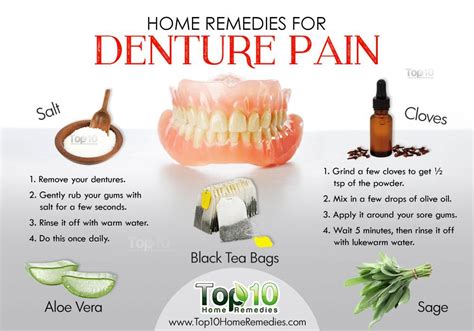How To Heal Denture Sores
Ronan Farrow
Mar 24, 2025 · 3 min read

Table of Contents
How to Heal Denture Sores: A Comprehensive Guide
Dealing with denture sores can be incredibly uncomfortable, impacting your ability to eat, speak, and even smile confidently. Fortunately, with the right approach, you can effectively heal these sores and prevent future occurrences. This guide provides practical tips and advice to help you find relief and maintain a healthy mouth.
Understanding Denture Sores
Denture sores, also known as denture stomatitis, are often caused by irritation from ill-fitting dentures, poor oral hygiene, or an allergic reaction to denture materials. These sores can manifest as:
- Painful, red patches: These are often the first sign of irritation.
- Blisters or ulcers: These can be more severe and require extra care.
- Burning sensation: A common complaint, especially after eating or drinking.
- Difficulty eating and speaking: Soreness can make chewing and speaking challenging.
Identifying the cause of your sores is crucial for effective treatment.
Identifying the Root Cause of Your Denture Sores
Before jumping into treatment, consider these potential culprits:
1. Ill-Fitting Dentures:
- Loose dentures: Loose dentures can rub against your gums, leading to irritation and sores. Regular check-ups with your dentist are essential to ensure a proper fit.
- Sharp edges or rough spots: Even small imperfections on your dentures can cause significant discomfort.
2. Poor Oral Hygiene:
- Insufficient cleaning: Failing to clean your dentures thoroughly can allow bacteria to build up, leading to infection and sores.
- Neglecting gum care: Maintaining healthy gums is just as important as cleaning your dentures.
3. Allergic Reactions:
- Denture materials: Some individuals may be allergic to the materials used in dentures, resulting in irritation and sores. Consult your dentist if you suspect an allergic reaction.
4. Other Factors:
- Dry mouth: Saliva helps protect your mouth from irritation. If you suffer from dry mouth, address this issue to support healing.
- Certain medications: Some medications can increase the risk of mouth sores.
Effective Treatment Strategies for Denture Sores
Once you've identified the cause, you can begin implementing effective treatment strategies:
1. Improved Oral Hygiene:
- Clean your dentures thoroughly: Use a denture cleanser and a soft-bristled brush to remove plaque and food particles.
- Brush your gums and tongue gently: This helps remove bacteria and promotes healing.
- Rinse your mouth with saltwater: A saltwater rinse can help soothe irritation and reduce inflammation.
2. Addressing Ill-Fitting Dentures:
- Schedule a visit with your dentist: Your dentist can assess the fit of your dentures and make necessary adjustments.
- Consider relining or remaking your dentures: If your dentures are significantly worn or ill-fitting, relining or remaking them may be necessary.
3. Managing Allergic Reactions:
- Consult your dentist or allergist: They can help determine if you have an allergic reaction and recommend alternative denture materials.
4. Home Remedies for Soothe Relief:
- Aloe vera gel: Apply a small amount of aloe vera gel to the affected area for soothing relief.
- Saltwater rinse: Gently rinse your mouth with warm saltwater several times a day.
- Over-the-counter pain relievers: Ibuprofen or acetaminophen can help manage pain and inflammation. Always follow the dosage instructions on the label.
5. When to Seek Professional Help:
If your sores are severe, persistent, or accompanied by other symptoms such as fever or swelling, consult your dentist or doctor immediately. They can diagnose the underlying cause and recommend appropriate treatment.
Preventing Future Denture Sores:
Prevention is key to maintaining a healthy mouth and avoiding denture sores. Follow these tips:
- Practice meticulous oral hygiene: Clean your dentures and gums thoroughly daily.
- Visit your dentist regularly: Schedule regular check-ups to ensure your dentures fit properly.
- Keep your mouth hydrated: Drink plenty of water throughout the day.
- Avoid irritants: Avoid smoking, consuming excessive alcohol, and eating spicy foods that can further irritate your mouth.
By following these guidelines, you can effectively heal your denture sores and prevent future occurrences. Remember, a healthy mouth is essential for overall well-being. Don't hesitate to seek professional help if you are experiencing persistent discomfort or concerns.
Featured Posts
Also read the following articles
| Article Title | Date |
|---|---|
| How To Clean Bee Frames | Mar 24, 2025 |
| How To Get Rid Of White Rot | Mar 24, 2025 |
| How To Get Pollen In Infinite Craft | Mar 24, 2025 |
| How To Help A Teenager Struggling In School | Mar 24, 2025 |
| How To Get A Free Mri Scan | Mar 24, 2025 |
Latest Posts
-
How Long Can A Washing Machine Sit Unused
Apr 05, 2025
-
How Long Can A Tree Survive Out Of The Ground
Apr 05, 2025
-
How Long Can A Temporary Crown Stay On
Apr 05, 2025
-
How Long Can A Stingray Survive Out Of Water
Apr 05, 2025
-
How Long Can A Pool Go Without Chlorine
Apr 05, 2025
Thank you for visiting our website which covers about How To Heal Denture Sores . We hope the information provided has been useful to you. Feel free to contact us if you have any questions or need further assistance. See you next time and don't miss to bookmark.
